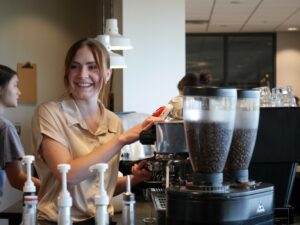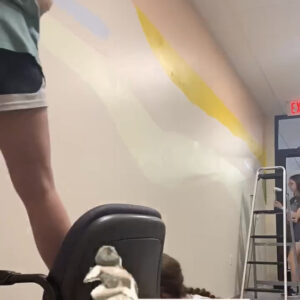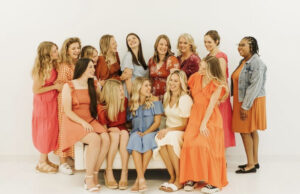To most people, high school played host to some of life’s most frustrating obstacles—weaving through stereotypical cliques, fighting for popularity and trying to keep your face clean from acne.
Caleb Janssen, a freshman at Oklahoma Christian University, spent the majority of his high school years being homeschooled and facing a different set of problems—working a job, not having classmates and trying to find a balance in the parent-teacher dynamic.
In a recent interview with the Talon, Janssen discussed the difficult transitions, perks and misconceptions of a homeschooled education:
What are some key challenges faced when transitioning from a home-schooled education into a full-time college student?
The biggest challenge is probably understanding and developing the teacher-student relationship. With your parents being your teachers, you can negotiate homework and tests. It’s kind of a flexible timeline. In college, you obviously cannot do that. A deadline is a deadline, and there is little you can do to change that.
What are some of the primary perks of a home-schooled education?
Being able to sleep in was a favorite perk of mine. Not going to class is a big one too. For me, I just did homework all week and then turned it in and got the next week’s homework. You can work at whatever pace suits you. When you get into high school, you have plenty of time to work a job as well which is convenient. The flexibility of it all can be very beneficial.
How do individuals who are home-schooled get to experience a social life or participate in group activities?
This is the biggest problem with homeschooling—there aren’t many social opportunities unless you go out of your way to find some. The ones I participated in revolved around church and youth groups. Home-school sports teams kept me involved as well. You just have to be intentional about cultivating relationships because if you don’t, you can find yourself lacking in the friends department.
What would say is the biggest difference between college and your previous education?
I hate saying it, but simply having classmates. It’s a big deal to have other people your age who are doing the same work and trying to pass the same tests you are. It’s so much more helpful and easier to understand the material because you can pull the whole “phone-a-friend” card if you aren’t necessarily picking something up quickly. Sometimes other students make great teachers.
What are common misconceptions about home-schooled students?
I would say the most common misconception is connected to sports. Saying home-school sports teams aren’t competitive is not necessarily a fair claim. That wasn’t my experience at all. The baseball and basketball teams I played on competed with some of the best public school programs in the state, and I think that shows. It prepared me well for collegiate athletics.
What advice would you give future Oklahoma Christian students who are also making the jump from home-school to university?
If you have the opportunity, spend at least one year of high school in a public or private school setting. I went to a private school my senior year, and it helped me immensely in preparing for social life and the student-teacher relationship in college. It just makes an already tough transition that much easier.
















Be First to Comment